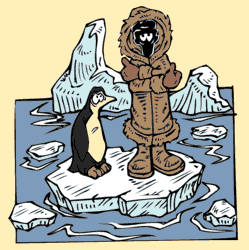 The final chapter in Robert Falcon Scott’s ill-fated Terra Nova Expedition to the South Pole occurred on this day 100 years ago, when the bodies of Scott and his companions were found by a search party, just over a year after they had set out for the Pole. The expedition had started with three different types of transport: horses, dogs and motorised sleds. None of these worked particularly well, and it was 17 January 1912 before the final group of five men reached the South Pole, only to discover that Norwegian explorer Roald Amundsen had been there five weeks earlier.
The final chapter in Robert Falcon Scott’s ill-fated Terra Nova Expedition to the South Pole occurred on this day 100 years ago, when the bodies of Scott and his companions were found by a search party, just over a year after they had set out for the Pole. The expedition had started with three different types of transport: horses, dogs and motorised sleds. None of these worked particularly well, and it was 17 January 1912 before the final group of five men reached the South Pole, only to discover that Norwegian explorer Roald Amundsen had been there five weeks earlier.
On the return journey, the condition of the five explorers gradually deteriorated with exposure and hunger. Edgar Evans died on 17 February. Lawrence Oates died on 16 March. On 19 March the three survivors made their final camp as a blizzard raged outside, and over the next 11 days their supplies ran out, Scott wrote his final words, and the three men died. It was another eight months before the bodies were found.
When the news reached England, Scott was hailed as a hero, and his heroic reputation lasted for more than 50 years. However, in the past 40 years most historians have been less kind to Scott, criticising his expedition as having been poorly planned and executed in an amateurish manner. Amundsen’s expedition, by way of contrast, has been regarded as well-prepared and skilfully executed.